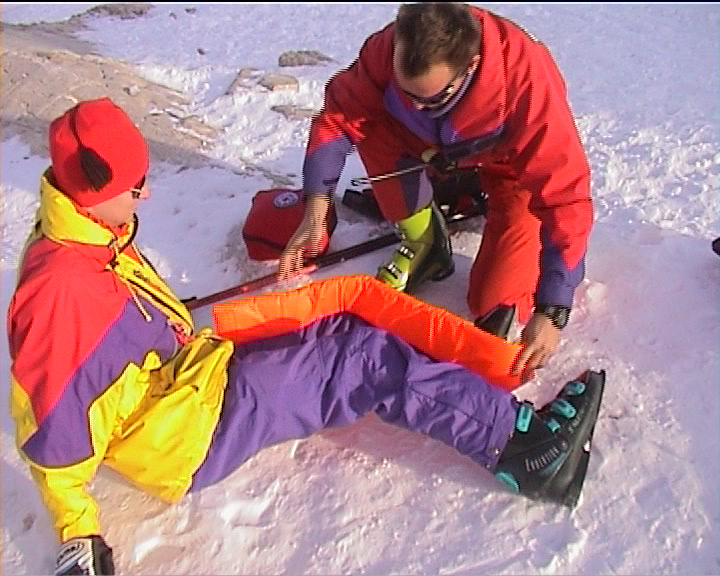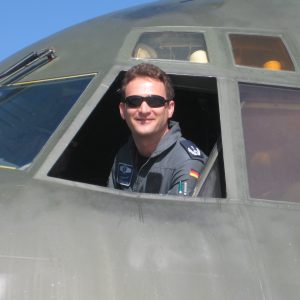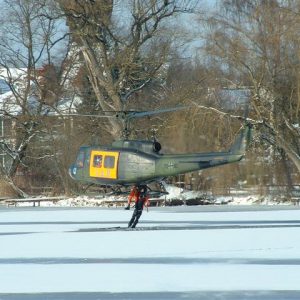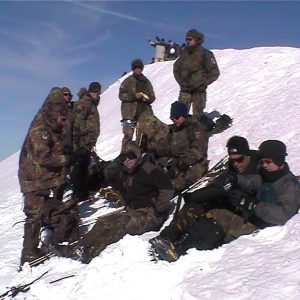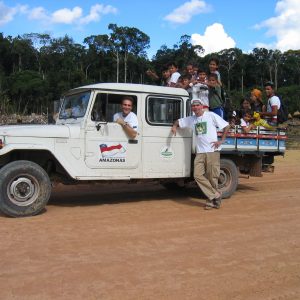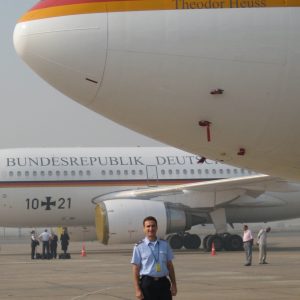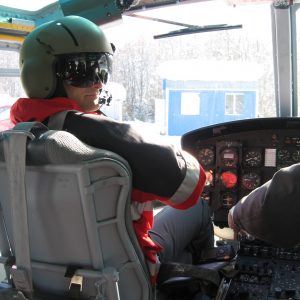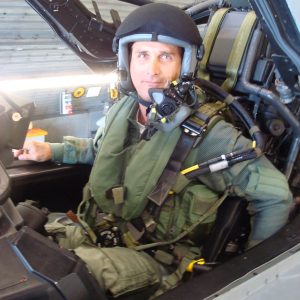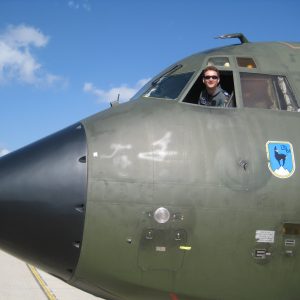ONLINE POST in ENGLISH, commissioned | AMP Student 2017;8
Reasons for getting a military doctor with the risk of working in a non-permissive environment – Chances to make a medical career adventurous
“Trust not what inspires other members of society to choose a career. Trust what inspires you“ (1).
As the development in the medical field of science is moving that quickly and hence, widening the spectrum of possible medical careers-activities, it is almost impossible to give a forecast to medical students as to what medical specialist they really end up becoming.
To find your own direction, the most important thing is to “trust what inspires you“ (1). Apart from becoming a medical doctor, I set as a personal goal to master two foreign languages and to visit every continent of the world. These personal goals drove my inspiration from the very first moment of my medical career.

The medical studies at university with internships in Pittsburgh/US and Byron Bay/Australia offered me the chance to improve my English skills. In addition to that, the ERASMUS project gave me the oportunity to enrole in the University of COIMBRA/Portugal for the second medical year, which I concluded with the preclinical graduation. Of course this initiated the process to learn Portuguese as another foreign language. Apart from that, friendships with South American and African students inspired me to discover their countries.
After graduation I started a residency in orthopedic surgery in Garmisch-Partenkirchen, located in the very south of Germany in the middle of the Alps. As part of the residency I had to be trained in pre-hospital emergency medical care, which qualified me as an emergency doctor in the ambulance service. As a senior resident, I expanded my activities in emergency medicine to mountain terrain and became part of the local mountain rescue team. This civilian organisation has collaborated with the German Airforce, which provided the Search and Rescue Helicopters for missions in the mountains; the first step getting in touch with the military.
The second step was a little bit unvoluntary, as I was pulled out in the middle of my residency by the mandatory military service. Willing to get the best out of it, I managed to combine my already aquired skills in emergency care with something adventurous and started to do parachuting at a military parachute school. As this period inspired me to look for more adventurious activities, I finally resigned my contract in the civil hospital and accepted the start of my military career in the military mountain training school. Apart from continuing as a resident in general medicine, the spectrum of medical activities widened to support military mountain guides during their training missions in the mountains.
As a consequence of my already aquired language skills in Portuguese, I took the chance of a resident exchange and went to Manaus/Brazil for a resident year in tropical medicine. This opened the door to the fascinating world of tropical medicine.
Meanwhile knowledge of tropcial diseases and emergency medical care assigned me my next post as air crew on a rescue helicopter in an air transport wing, as well as a flight surgeon and subject matter expert in tropical medicine on flights to various African and Asian countries.
The desire for aviation was finally born and I added an additional residency in aviation medicine. Getting trained in the medical evacuation procedures for casualties, medical assessments of pilots, as well as in piloting, and even flying fast jets as a back seater. As a graduated flight surgeon I was deployed amongst others to Afghanistan and Mali, where I was responsible for performing the air evacuation of casualties within theatre to hospitals with an appropiate level of care. Of course working in this kind of non permissive environment requires medical skills as well as military training, but team work was always an important factor in ordert to get out of even the most complicated situations.

Finally I ended up as a medical advisor in a NATO headquarter and contribute with my knowledge to the planning of NATO missions in an international environment where I can practise my foreign language skills.
Summing up, following my inspiration took me to a non conventional medical career.
References:
- Zelinski E. The Lazy Person´s Guide to Success. 2002
Check more abou this journey in this gallery:

